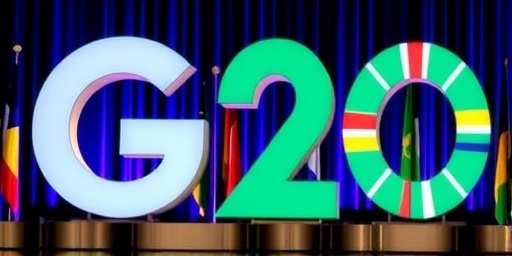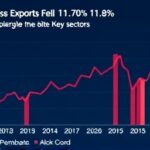Johannesburg, South Africa – As the world grapples with economic uncertainties and escalating climate challenges, the G20 Leaders’ Summit opened today in the vibrant city of Johannesburg, marking a pivotal moment for global cooperation. Hosted by South Africa for the first time since the group’s inception, the three-day gathering brings together heads of state from the world’s largest economies to forge paths toward debt relief for struggling low-income nations, bolster climate adaptation strategies, and accelerate investments in clean energy. With over 80% of low-income countries facing debt distress according to recent World Bank reports, the summit’s agenda underscores the urgent need for sustainable growth that leaves no nation behind.
The opening ceremony, held at the Sandton Convention Centre under a clear African sky, featured speeches from South African President Cyril Ramaphosa and incoming G20 President for 2025, Brazil’s Luiz Inácio Lula da Silva. Ramaphosa emphasized the summit’s theme of ‘Solidarity, Equality, and Sustainability,’ declaring, ‘In the face of global inequities, the G20 must act not as a club of the wealthy, but as a bridge to a fairer world.’ This sentiment resonated amid backdrop displays of renewable energy projects and data visualizations showing the $100 billion annual climate finance gap for developing countries.
Debt Relief Emerges as Summit’s Top Priority for Low-Income Economies
At the forefront of discussions is the pressing issue of debt relief, a crisis exacerbated by the COVID-19 pandemic, the Ukraine conflict, and rising interest rates. The International Monetary Fund (IMF) estimates that 60% of low-income countries are now at high risk of debt default, up from 40% just five years ago. Leaders from African and Asian nations, including Nigerian President Bola Tinubu and Indonesian President Joko Widodo, called for an expansion of the G20’s Common Framework for Debt Treatments, which has so far restructured only a fraction of the $1 trillion in outstanding debt owed by vulnerable economies.
In a morning plenary session, U.S. Treasury Secretary Janet Yellen highlighted the need for innovative financing mechanisms, stating, ‘Debt relief isn’t charity; it’s an investment in global stability. By alleviating the burden on these nations, we unlock their potential for sustainable growth and reduce migration pressures.’ Echoing this, European Commission President Ursula von der Leyen proposed channeling a portion of frozen Russian assets—estimated at $300 billion—toward debt forgiveness, a move that could free up $50 billion for development projects over the next decade.
Delegates also explored debt-for-climate swaps, where countries exchange debt repayments for commitments to environmental protection. Kenya, which recently completed such a deal worth $500 million for ocean conservation, presented its model as a blueprint. However, challenges remain: China, holding 20% of emerging market debt, urged multilateral coordination to avoid unilateral actions that could disrupt markets. The session wrapped with a draft communique pledging to mobilize $250 billion in concessional financing by 2030, though critics from civil society groups outside the venue decried it as insufficient without binding timelines.
Climate Adaptation Strategies Gain Momentum Amid Record Heatwaves
Shifting focus to environmental imperatives, the summit dedicated an afternoon panel to climate adaptation, recognizing that adaptation funding has lagged far behind mitigation efforts. The United Nations Framework Convention on Climate Change (UNFCCC) reports that developing countries require $215-387 billion annually for adaptation by 2030, yet only $23 billion was mobilized in 2021-2022. South Africa’s hosting role amplified voices from the Global South, where climate impacts like droughts and floods have already cost the continent 5-15% of GDP annually.
Indian Prime Minister Narendra Modi, representing one of the world’s most climate-vulnerable populations, stressed the inequities in global responses: ‘While the developed world industrialized on fossil fuels, emerging economies like India seek clean energy transitions without sacrificing growth. Adaptation must be equitable.’ He announced India’s pledge of $1 billion to the Loss and Damage Fund, established at COP27, urging G20 peers to match it. In response, the European Union committed an additional €20 billion over five years for adaptation projects in small island states and sub-Saharan Africa.
Technical workshops delved into specifics, such as resilient agriculture and coastal defenses. A case study from Bangladesh showcased how early warning systems reduced flood deaths by 90% in recent years, inspiring similar tech transfers. Yet, tensions arose over accountability: Brazilian officials pushed for stricter emissions cuts from high-income nations, citing the G20’s collective responsibility for 80% of historical carbon emissions. The discussions culminated in a side agreement among 15 members to integrate adaptation metrics into national development plans, aiming to bridge the funding gap through blended public-private finance.
Clean Energy Pledges Aim to Power Sustainable Growth Worldwide
Underscoring the summit’s commitment to green transitions, leaders unveiled ambitious clean energy initiatives designed to catalyze sustainable growth. The International Energy Agency (IEA) projects that tripling renewable capacity by 2030 could create 14 million jobs globally, but current investments fall short at $1.3 trillion annually against a needed $4 trillion. Johannesburg’s sessions spotlighted Africa’s untapped potential, with the continent holding 60% of the world’s best solar resources yet generating less than 2% of global clean energy.
Saudi Arabia’s Crown Prince Mohammed bin Salman, a key player in oil-dependent economies, surprised attendees by endorsing a G20-wide target to phase out coal subsidies by 2030, aligning with the Just Energy Transition Partnerships (JETPs). ‘Diversification is key to enduring prosperity,’ he remarked, referencing Saudi’s $180 billion green hydrogen push. Meanwhile, Japan’s Prime Minister Fumio Kishida detailed a $10 billion export credit facility for renewable tech to Asia and Africa, focusing on solar and wind installations that could power 100 million homes by 2027.
Private sector involvement was a highlight, with CEOs from TotalEnergies and Siemens Energy joining roundtables. A joint venture announced between South Africa’s Eskom and China’s State Grid promises to deliver 5 gigawatts of solar capacity, reducing carbon emissions by 7 million tons yearly. Statistics from the summit’s dashboard illustrated the stakes: Achieving net-zero by 2050 requires $110 trillion in investments, with clean energy comprising 70%. Critics, however, pointed to greenwashing risks, demanding transparency in supply chains to avoid exacerbating inequalities in mineral extraction for batteries and panels.
South Africa’s Hosting Spotlights African Priorities in Global Forum
As the first African nation to host the G20, South Africa leveraged the platform to elevate continental concerns, from food security to digital inclusion. President Ramaphosa’s opening address wove in the legacy of apartheid and colonialism, arguing that true sustainable growth demands addressing historical debts. The summit venue, adorned with Ubuntu-inspired art, hosted cultural exchanges that humanized policy debates, including youth forums where 500 young Africans advocated for green jobs.
Bilateral meetings on the sidelines yielded tangible outcomes. French President Emmanuel Macron and Ramaphosa signed a €2 billion deal for water infrastructure resilient to climate change, while Australian Prime Minister Anthony Albanese committed AUD 500 million to biodiversity conservation in the Indian Ocean region. African Union Chair Moussa Faki Mahamat praised the inclusivity, noting, ‘This G20 is a turning point; Africa’s seat at the table ensures our voices shape the agenda.’
Security measures were robust, with 10,000 personnel patrolling Johannesburg amid protests from anti-globalization groups demanding more radical reforms. Inside, the atmosphere buzzed with optimism, tempered by realism about geopolitical fractures like U.S.-China trade tensions potentially derailing consensus.
Looking ahead, the Johannesburg summit sets the stage for 2025’s Brazilian presidency, with expectations of a finalized debt relief architecture and scaled-up climate adaptation funds. If successful, these efforts could redefine the G20 as a force for equitable sustainable growth, powering a cleaner, more resilient global economy. Stakeholders anticipate breakthroughs that not only alleviate immediate crises but also lay foundations for long-term prosperity, particularly in the Global South where the stakes are highest.








